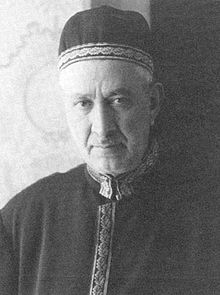
Born in 1909, equivalent to 5669 in the Hebrew calendar, Rabbi Yedidia Shofet was the second child of a devout Jewish family from the city of Kashan. According to historical records, Yedidia’s paternal ancestors were renowned religious scholars in Kashan for over five centuries, taking on religious leadership responsibilities and guidance for the Jewish community.
Yedidia began his education at his father’s seminary, Rabbi David Shofet, who was considered a scholar and religious leader. From an early age, he became familiar with religious matters. Later, he studied under the guidance of Mullah Matitya Haveri and Mullah Ezekiel Namverdi, delving into the sciences of the Torah. He continued his studies in the presence of Rabbi Nathan Rofe and Rabbi Shmuel Yeroushalmi, both of whom had received higher religious education in Jerusalem and returned to Iran. With diligence and a sharp intellect, he quickly mastered all levels of religious studies. At the age of seventeen, he joined the Jewish Committee and was immediately entrusted with managing the Agha Kutiel School in Kashan. Additionally, he served as an official notary, handling the religious affairs of the Kashani Jewish community. Among Mr. Shofet’s other activities was the performance of circumcision ceremonies for Muslim infants in Kashan and other nearby cities.
In 1935, Yedidia Shofet married a woman named Heshmat Ismaelian, and their union resulted in four sons and two daughters. Their eldest son, Rav David, followed in his father’s and ancestors’ footsteps and is engaged in religious leadership for Iranian Jews in Los Angeles.
In 1947, Rabbi Yedidia Shofet relocated from Kashan to Tehran. He immediately established his notary office in the vicinity of the Cyrus Synagogue. Mr. Shofet dedicated his time to teaching religious sciences at the Cyrus School and Alliance School, and delivering lectures in various synagogues in Tehran, especially at the Cyrus and Haim Synagogues. Soon, Rabbi Isaac Levi, the founder of Otzer Hatorah, invited him to collaborate with the cultural organization, where he provided education and participated in seminars for Hebrew teachers.
Rabbi Yedidia served as a religious authority until 1981, carrying out this vital duty for over thirty years. He successfully fostered warm and close relations with scholars of various religions, religious authorities, jurisprudents, and statesmen, particularly Muslim politicians, and actively participated in Shia gatherings due to his skilled orations. He actively represented the Jewish community in Iran along with other trusted individuals in many official national ceremonies and seminars. Additionally, he promoted women’s rights among Iranian Jews and played a role in establishing the Beth Din (religious court) of the Iranian Jewish community.
Rabbi Yedidia Shofet was one of the religious authorities of the Iranian Jewish community, and his dedication to community service spanned over 80 honorable years. With love and loyalty to the ideals of Judaism, he laid the foundation for his life on the guiding principles of the heavenly book. Through education and upbringing, he passed on the grand values of faith and the Jewish religion to the generations that followed him. In tumultuous periods of Jewish history, when our space was filled with intense biases and dogmatism against us, he protected and steered the bright torch of Jewish culture with selflessness and sacrifice.
In 1981, Rabbi Yedidia Shofet immigrated to the United States. Despite his advanced age, he continued his cultural activities in Los Angeles. In 1989, with the help of other benefactors, he established the “Nesah Cultural and Religious Center”. In 2001, with the relocation of the Nesah Cultural Center to a new location, it became one of the largest religious and cultural centers for the Iranian Jewish community in the United States. Rabbi Shofet was so highly respected that he was appointed as the honorary head of most Iranian Jewish associations and organizations in Los Angeles.
Although Rabbi Yedidia Shofet wasn’t a political leader, he was well-versed in politics and provided leadership to many with his deep insights and broad perspective. His words significantly impacted various sensitive situations and proved to be constructive and beneficial.
This spiritual leader passed away in 2005, equivalent to 5765 on the Hebrew calendar, at the age of 97.
